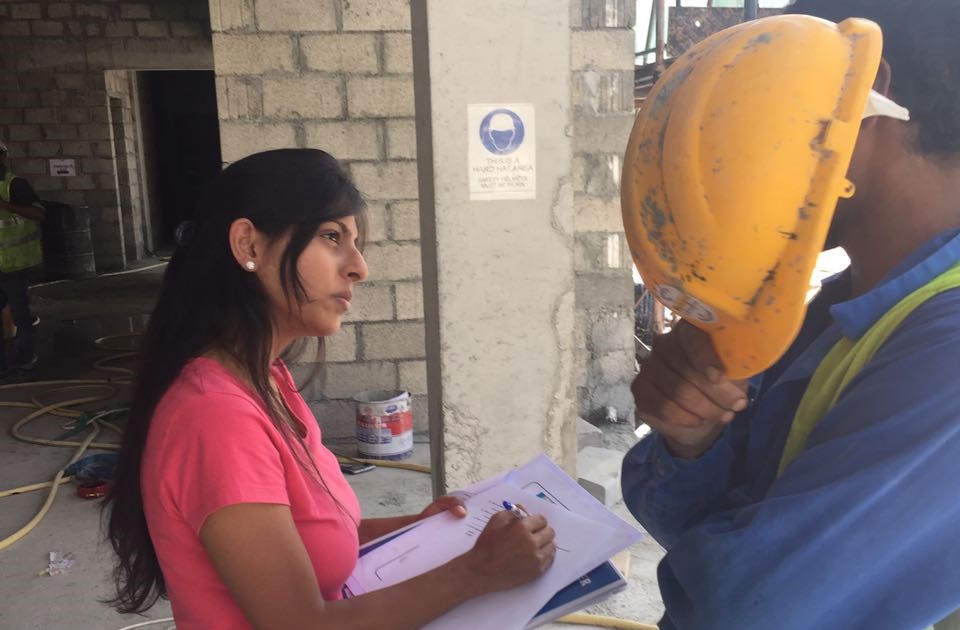Having grown up with a passion for business and marketing, it was an exciting opportunity for me when I was offered a role with new fintech start-up, NOW Money.
The company is using the latest mobile technology to offer the UAE’s 4 million migrants who are not eligible for a bank account due to their low earnings, an account, making it easier for them to remit money to their home country and giving them financial inclusion.
When I began working, I was keen to get to know our audience and find out what they want and need from the app in order to want to download it. From appealing colours to languages, biometric preferences and method of communication, I needed to know it all.
So, I went out in the local area to speak to people and conduct exclusive market research. The nationality of the participants varied, from Indian, Pakistani, Bangladeshi, Nepalese and Filipino. I have always been confident and able to speak to anyone and everyone, so I went into local shops, hotels, taxi ranks and construction sites. I even met some delivery workers on their break, chilling in the park.
When I was out speaking to these people I learnt not only their aesthetic preferences, but also they wanted to tell me their struggles with the current remittance process. Not a lot of research has been reported on this particular subject, so I thought I’d share with you what I learnt and some of the stories I heard.
They’re sending money back home for various reasons, such as to pay for their family’s day-to-day expenditure, as well as cover rent payments, medical fees and school fees to educate their children. It was obvious to see they had a huge weight on their shoulders, and they eagerly wait to receive their salary at the end of the month; it means so much to their families back home.
However, they are often faced with challenges when trying to send the money home. It was widely reported that remittance is incredibly expensive, which, when you’re not earning much as it is, can severely reduce the amount you’re left with. Another large bugbear they were keen to bring to my attention was that they are made to wait in long queues at the exchange houses for their turn to remit money. And then, after all that, it takes a very long time for the money to reach their recipient.
It made me sad to hear one lady’s experience. She told me that she earns AED 900 per month, and to send money home to India, she has to pay AED 20 at the exchange house each time. She said that this is equivalent to her food for the week, so some weeks she has little or no money left for herself. To hear this was heart-breaking, especially because these people tend to work non-stop, six or seven days a week.
Another thing making remittance hard is the exchange rate. According to those surveyed, the salary earned in foreign currency is worth more in their home countries, however the poor exchange rates provided by FX houses means that less money is remitted than expected.
One Bangladeshi construction worker told me: “I receive my salary on a payroll card and withdraw it once a month to avoid multiple withdrawal fees, and because I don’t have a bank account I am insecure about handling cash in a shared room with my co-workers. This is why I send most of my salary home and keep very limited cash in hand, which lasts me until I get my next pay. It’s safer to remit my money at a poor rate than risk to losing it,” he said.
It was an eye-opening experience hearing their stories; especially because they are often ignored by others. I was so proud to explain to them about our app, and see their happiness and eagerness to begin using it when it launches. I am proud to say that from my research, it is clear to see it will definitely make their life easier, and I am delighted to be part of such an amazing product that is striving to make a difference.







